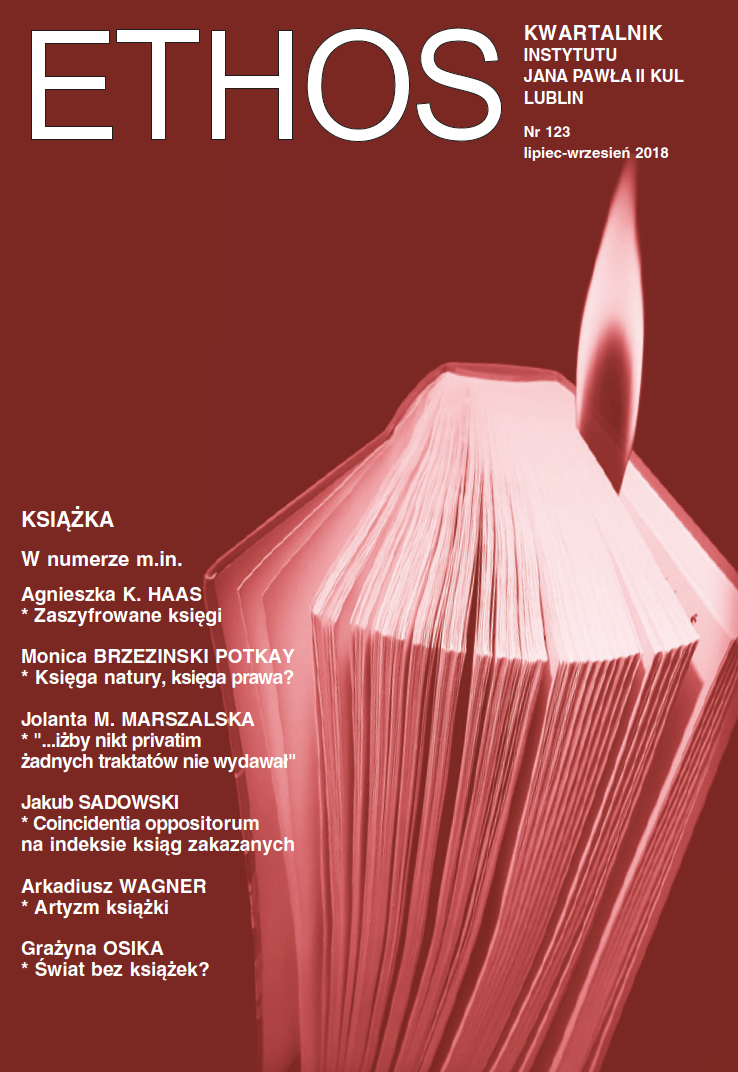KSIĘGA NATURY, KSIĘGA PRAWA? Prawo naturalne w poemacie „The Owl and the Nightingale”
The Book of Nature, the Book of Law? Natural Law in the “The Owl and the Nightingale”
Author(s): Monica Brzezinski PotkaySubject(s): Christian Theology and Religion, Studies of Literature
Published by: Katolicki Uniwersytet Lubelski Jana Pawła II - Instytut Jana Pawła II, Wydział Filozofii
Keywords: “The Owl and the Nightingale;” natural law; statutory law; nature; morality; sin; institution of marriage; rule of love
Summary/Abstract: The paper comprises an analysis of the medieval poem “The Owl and the Nightingale” with a view to a reconstruction of the concepts of natural law found in the text in question. The debate between the Owl and the Nightingale was a pretext for the author of the poem to present the gist of the theological and philosophical controversies over natural law characteristic of the 12th and the 13th centuries. The particular legal issues addressed in the poem are derivative of the main question put in this context, namely to what extent the Book of Nature is simultaneously the Book of Law and, in particular, whether its norms are equally binding to animals and to humans. A specific object of the controversy between the birds is animal and human sexuality and the distinction between the natural and the unnatural behaviors in this domain. Human rationality, which differentiates humans from animals, provides—as both the Owl and the Nightingale acknowledge—an argument for the thesis that human actions are ruled by a natural law other than the one proper to the animal world. The birds’ ‘debate’ is referred in the article to particular controversies and debates on natural law continued in the antiquity and in the medieval times, among others to the concepts formulated by Cicero, Augustine, Hugh of St. Victor, Huguccio of Pisa, Peter Damiani, Ulpian, Isidore of Seville, Alan of Lille, Jean de Hauteville, Peter Lombard, Aelred of Rievaulx, Steven of Tournai, Simon of Tournai, Martin of Alnwick, Bonaventure, Thomas Aquinas, Anselm of Laon, Peter Abelard, Philip the Chancellor, and Albert the Great. Other signifi cant medieval texts on natural law, such as Gratian’s Decretum, Summa Lipsiensis, and Summa Monacensis, are also addressed.
Journal: Ethos. Kwartalnik Instytutu Jana Pawła II KUL
- Issue Year: 31/2018
- Issue No: 3
- Page Range: 103-126
- Page Count: 24
- Language: Polish
- Content File-PDF

